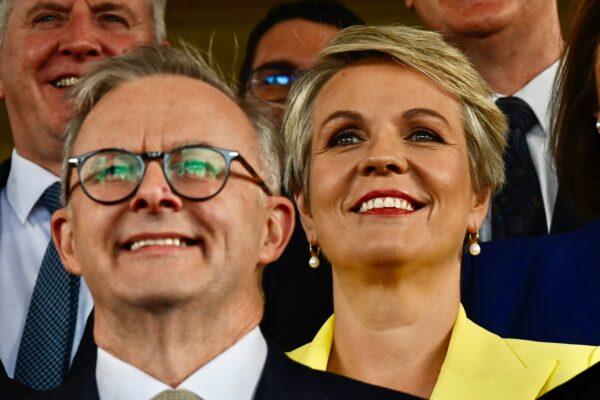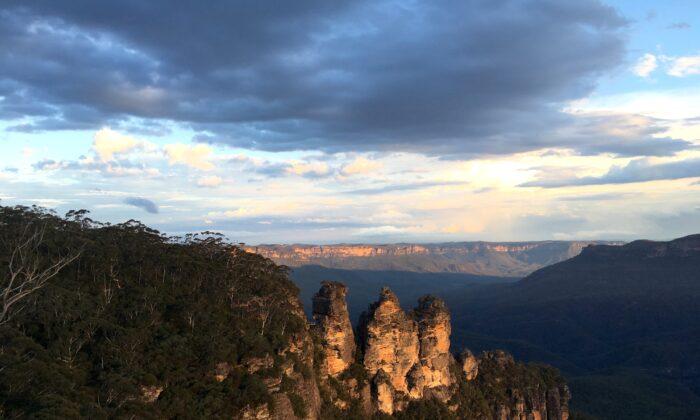The Australian Minister for the Environment and Water, Tanya Plibersek, has announced the federal labor government will establish an environmental protection agency to oversee its new legislation on environmental protection and conservation laws.
The new independent body is part of the federal government’s ‘Nature Positive Plan: Better for the Environment, Better for Business,’ announced on Thursday by Plibersek to address the findings of the 2020 Samuel Review of the Environment Protection and Biodiversity Conservation Act (EPBCA) by Prof. Graeme Samuel.
The Review found that the EPBCA required fundamental reform.

To address the recommendations in the report, she said that the federal government would deliver stronger laws designed to repair nature and protect flora and fauna.
“For the first time, our laws will introduce standards that decisions must meet. Standards describe the environmental outcomes that we’re seeking. This will ensure that decisions that are made will protect our threatened species and ecosystems. And, of course, a new Environmental Protection Agency will make development decisions and enforce them,” Plibersek said.
“Our Nature Positive Plan will also be better for business by delivering more certainty, saving time and money with faster, clearer decisions. Regional plans will identify the areas that we want to protect, areas that can be fast-tracked for development, and areas where development can proceed with caution.”
Plibisek noted the government would also seek Indigenous input into the new regulations, which are expected to be put before parliament in the following months.
New Independent Environment Protection Agency
Plibisek said while the details of the design are still being considered, the government intended for the new environmental protection agency to be an independent body with a statutorily appointed chair and its own budget to make sure that the agency operates in a transparent way.“One of the reasons that we’re establishing it in this way is to make sure that it is transparent, that it is answerable to our democracy, that people can see the decisions that are being made, and why they’re being made and how they are being made and can have confidence that there is integrity in the system,” the minister said.
Additionally, she said the new regulatory body would also take on a number of responsibilities currently performed by the Department of Environment.
Plan Criticised By Environmentalists for ‘Massive Blind Spot’
However, the federal government is facing criticism from both sides of the debate, with environmental advocates, The Climate Council, accusing the federal government of neglecting to include greenhouse emissions from fossil fuel developments—called scope 3 emissions—stating this is “a massive blind spot.”Climate Council Director of Research Dr Simon Bradshaw said that while the new plan is a positive step, it fails to address emissions from exported fossil fuels.
“ While this is a positive reform, Scope 3 emissions (and burned overseas) will not be taken into account,” Bradshaw said.
“The Albanese Government says it’s committed to driving down emissions, so why not account for the major contribution to global emissions Australian coal and gas causes?
“This is a major oversight.”
Opposition Says Plan Needs to Be More Detailed to Allay Concerns
Meanwhile, the Shadow Minister for the Environment, Jonno Duniam, alleged that the plan was only creating more uncertainty for the business community.“Better environmental outcomes are essential, and the Coalition supports the need to ensure that what we do in our country has minimal impact on our precious environment, but not at the cost of thousands of jobs and unworkable regulation which will strangle businesses across the country,” Duniam said.
He also said that the lack of clarity around new regulatory powers of the environmental protection agency caused him concern.
“Far from the balance between environmental and economic outcomes promised, the lack of detail around how the new laws and standards would be developed, by whom, when and how they would operate creates a high degree of uncertainty which will sound alarm bells for those considering investing in our country,” he said.
“That is on top of the lack of clarity around costs. Not once did the Minister promise in today’s announcement that it would be cheaper to get environmental approvals. The new cost-recovery arrangements, the new unaccountable Environmental Protection Authority with unspecified powers and the notion of new “conservation payments” which could amount to tens of millions of dollars will have a chilling effect on economic growth at a time Australia needs it most.”




